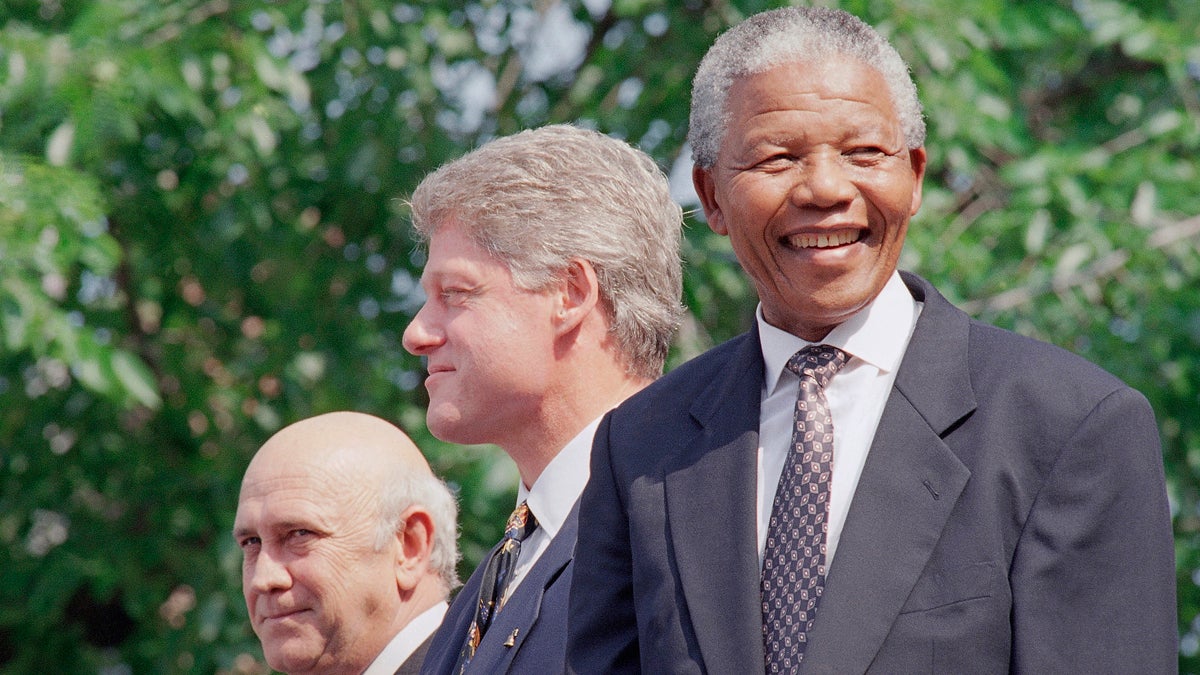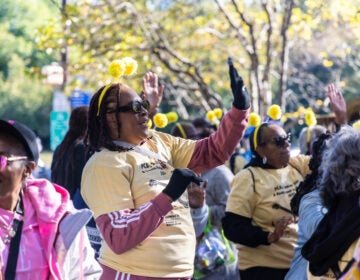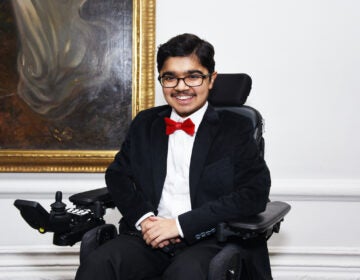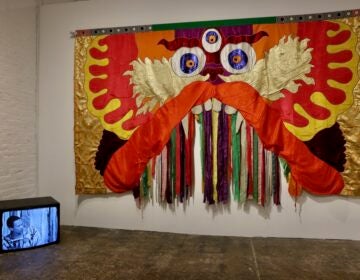South Africans in Philly area mourn Nelson Mandela

From left, F.W. de Klerk, President Bill Clinton, and Nelson Mandela appear at ceremonies honoring the two South African leaders with the Philadelphia Liberty Medal at Independence Hall in Philadelphia Sunday, July 4, 1993. (Greg Gibson/AP Photo)
As the world mourns Nelson Mandela, the South African leader who helped to end apartheid, a few Philadelphia area residents recall pivotal moments in his life — and theirs.
For South Africans, the moment Nelson Mandela emerged from prison after 27 years is one that everyone remembers.
Vuyo Dunjwa was 18 and still living in South Africa in 1990 on that day.
“Everybody literally just sat in front of their tellies and we were all glued to see this moment and whether it would actually really happen,” he said. “When the picture finally turned, and he started walking toward everybody, it was like a new day.”
“How euphoric we felt, how energetic, how hopeful we were and how our expectations literally shot through the roof immediately,” he recalled.
Part of the sorrow surrounding Mandela’s death comes from wondering who will be such a powerful moral steward in his absence, he said.
“It is a moment that is filled with sadness but also ripe with opportunity,” Dunjwa said. “It is an opportunity to be able to celebrate who he was, who he has been, what he represents, and also what the possibilities are for not only Africans but everyone else around the world.”
Carol Muller, a South African who now teaches music at the University of Pennsylvania, recalled a man who transcended the ordinary.
“He allowed for a kind of a largeness of vision and a largeness — the sense of what was actually miraculous and impossible in many people’s minds,” she said. “I think what he embodies for many people is not only larger than life but larger in life — just not letting life determine what was possible but pushing forward to shape his circumstances and the circumstances of so many people around him.”
Six months before winning the Nobel Prize for peace, Mandela and South African President F.W. de Klerk, at one time adversaries, traveled to Philadelphia to receive the Liberty Medal in 1993.
“He was one of those special people who radiated goodness and decency,” recalled then-Mayor Ed Rendell. “We don’t have enough of them, and Lord knows when we’ll see another like him.”
Philadelphia set up six polling places in 1994 for South African expatriates to cast their votes in the country’s first interracial election when Nelson Mandela was elected South Africa’s first black president.
WHYY is your source for fact-based, in-depth journalism and information. As a nonprofit organization, we rely on financial support from readers like you. Please give today.




